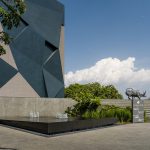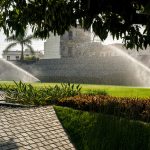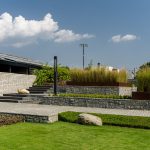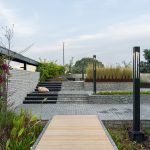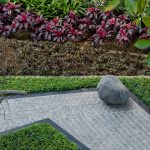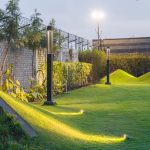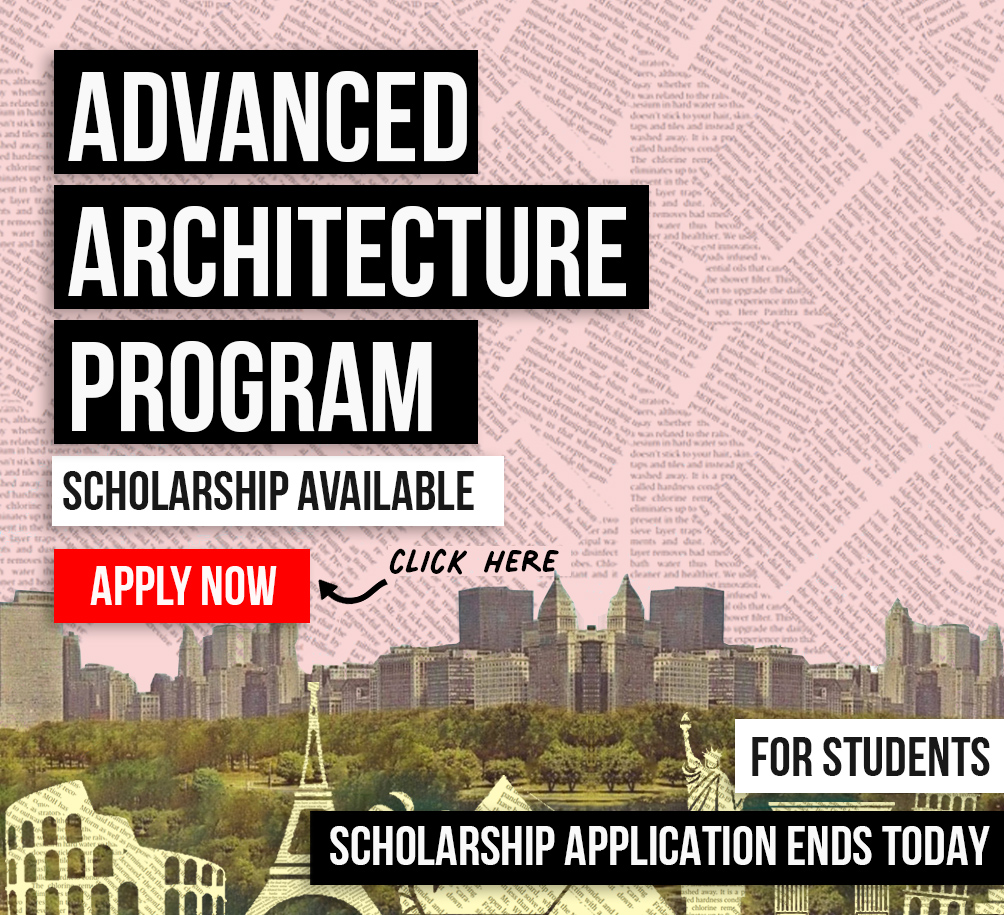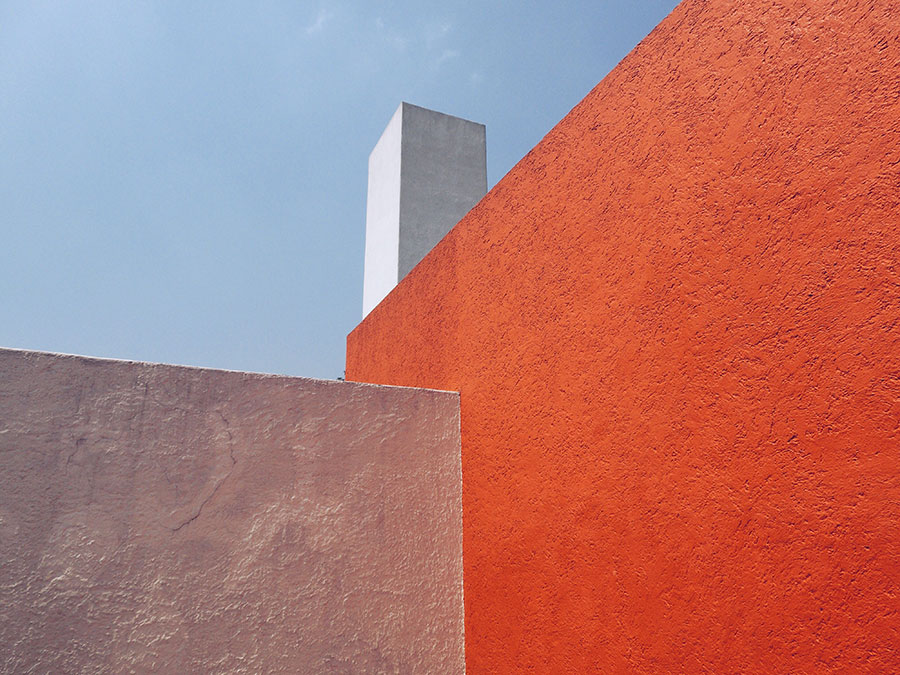Located in the foothills of the Shivalik range, Amram derives its name from the fruit ‘Aam’ or ‘Mango’. The project drew its inspiration from the native landscape of the seasonal water stream ‘The Choe’, as well as the natural elements of the region, surrounded by rocks, pebble beds, and wild grasses. It establishes itself as an amicable link between natural surroundings and the built environment.
Project Name: Amram
Project Location: Hoshiarpur
Office Name: Paras Sareen and Associates
Firm Location: Jalandhar, India
Photo Credits: Ar.Nakul Jain
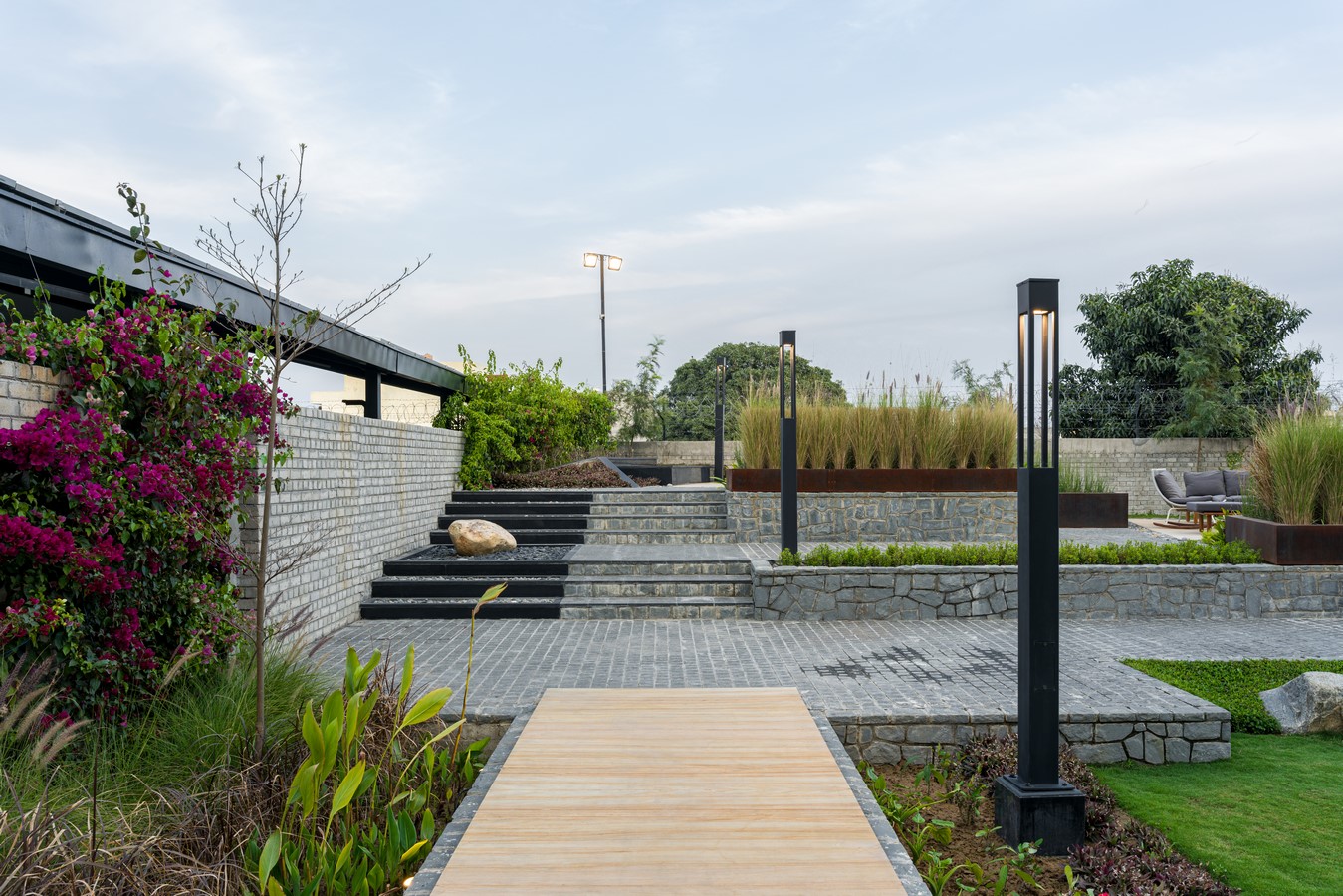
The Site
Amram is the landscaped area of a 38250 sqft office property. The site had existing mango trees which played a crucial role in the planning of the landscape. All the mango trees have been retained. Since there was additional soil readily accessible from the excavation, we had the chance to create levels and mounds. A 6 feet level difference between the entrance road on the south and the abutting wall on the north provides a natural gradient in the terrain which has been employed while playing with levels. The built form’s architectural vocabulary translates into the landscape in a myriad of ways.
The Choe
The lowermost level of the terrain acts as a natural reservoir of water traditionally called a ‘Choe’ and carries the bulk “runoff” rainwater during the monsoon. It is connected to the rainwater harvesting chamber. The Choe is shaded by an avenue of trees. Spiky horsetail reeds line the bottom of the sunken Choe which contrasts with other mellow plantations around that area. The pathway running along the Choe creates a leisurely experience for the users giving the feeling of walking along a waterbody in a dense green environment. A bridge over the Choe connects the pathway with the entrance steps of the building.

Open Lawn
The entrance is kept open with a minimalistic and non-obstructive water feature which provides a clear view of the iconic office building. The hardscape is paved with cobblestones which also serve as directional guides for pedestrian and vehicular movement. The use of corten steel strips to edge the triangular mounds in the lawn gives it a new character, creating points of interest.
In accordance with the existing level difference of the site, the plinth is raised which is accessed through a flight of steps. From the plinth and the upper floors of the building, one can experience the use of angular and bold lines in the landscape design.
Stepped Decks
The decks provide working professionals with revitalizing recreational space that ends the loop of being weary from sedentary sitting jobs. The seating on the decks provides informal meeting spaces as well.
Spill Out
More layers of detail and intricacy come into play at the rear end of the site since the place receives glare-free light. Old Jamun and Amrood trees shade the space which provides ideal conditions for sub-tropical plants to grow. Plantation beds with dracaena rosea, Syngonium, Rhapis, areca palms, rhoeo bicolor, and wedelia create a rainbow-like colorful soft-scape. This intimate setting acts as a spill out from the recreational zone of the built form. The steps leading down from the plinth act as informal seating with a view of the intricately designed zig-zag pathway around the avenue of trees that leads to the main terraced area.

Pathway Lighting
Since the office does not function in the evening, minimal lighting has been provided in the landscape. The signature light poles placed along the pathways were fabricated on-site. The design for this pole borrows the modern, contemporary, and sleek design ideas of the built form.
The design vocabulary of the landscape compliments the built form. Flowering rain lilies, mango tree groves, ornamental fountain grasses, native plants with seasonal colors, cobblestone, and corten steel planters create a meandering visual scape of natural textures. The verticality of the built form is well-balanced through the elements of landscape design.



